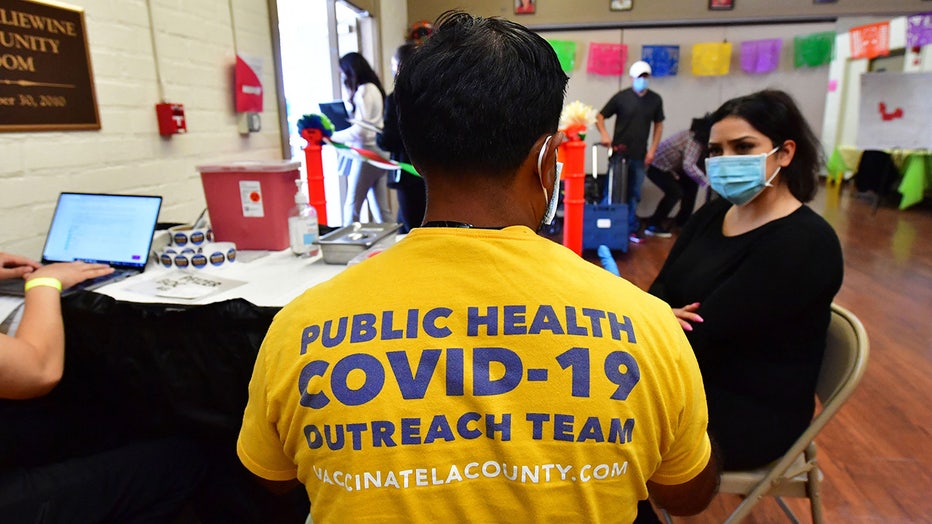White House updates response plan for infectious COVID variants; pushes boosters
WASHINGTON - The Biden administration is calling on people to exercise renewed caution about COVID-19, emphasizing the importance of getting booster shots for those who are eligible and wearing masks indoors as two new highly transmissible variants are spreading rapidly across the country.
The new variants, labeled BA.4 and BA.5, are offshoots of the omicron strain that has been responsible for nearly all of the virus spread in the U.S. and are even more contagious than their predecessors. White House doctors stressed the importance of getting booster doses, even if you have recently been infected.
"Currently, many Americans are under vaccinated, meaning they are not up to date on their COVID-19 vaccines," said Dr. Rochelle Walensky, director of the Centers for Disease Control and Prevention. "Staying up to date on your COVID-19 vaccines provides the best protection against severe outcomes."
Walensky said the U.S. has seen a doubling in the number of hospitalizations due to COVID-19 since April, reflecting the spread of the new subvariants, though deaths have remained steady around 300 per day.
Dr. Anthony Fauci, the nation’s top infectious disease expert, said while the new variants are concerning, with boosters, indoor masking and treatments the country has the tools to keep them from being disruptive.
"We should not let it disrupt our lives," he said, "but we cannot deny that it is a reality that we need to deal with."
He added that even if someone recently had COVID-19, they should get a booster.
"Immunity wanes, so it is critical to stay up to date with COVID-19 vaccines," he said.

FILE: A woman points to her arm to receive her booster shot at a COVID-19 vaccination and testing site decorated for Cinco de Mayo at Ted Watkins Park in Los Angeles on May 5, 2022. (Photo by FREDERIC J. BROWN/AFP via Getty Images)
RELATED: COVID-19 omicron subvariants BA.4 and BA.5 could be ‘worst’ so far, doctors say
All Americans age 5 and over should get a booster five months after their initial primary series, according to the CDC, and those aged 50 and over — or who are immunocompromised — should get second booster four months after their first. According to CDC, tens of millions of eligible Americans haven't received their first booster, and of those over 50 who got their first booster, only 28% have received their second.
"If you’re over 50 and you haven’t gotten the shot this year, you should go get a shot," said White House COVID-19 coordinator Dr. Ashish Jha. "It’s going to save your life."
RELATED: New vaccine could protect against COVID-19 variants before they emerge
Jha and Fauci said the U.S. is regularly discussing expanding eligibility for a second booster shot to all adults, but that no decision has been made yet.
"It’s a regulatory decision on the part of the FDA," Fauci said.
Jha pressed said people who are eligible for a booster but haven't received one shouldn't wait for forthcoming vaccines targeted at the omicron strain in addition to the original form of the coronavirus. The U.S. has ordered 105 million of those updated shots that studies show provide better protection against omicron variants, but they won't be available until the fall.
"Let me be clear, if you get vaccinated today, you’re not going to be ineligible to get the variants specific vaccine, as we get into the later part of fall and winter," Jha said. "So, this is not a trade-off, we’ve got plenty. It’s a great way to protect yourself."
Added Fauci: "The threat to you is now."
Walensky noted that CDC data shows that about a third of Americans are living in areas the agency classifies as experiencing a high level of COVID spread, where the agency recommends people wear masks in public indoor spaces. Another 41% live in the CDC's ‘medium’ level, where it recommends that people consider their own individual risk and consider masking.


